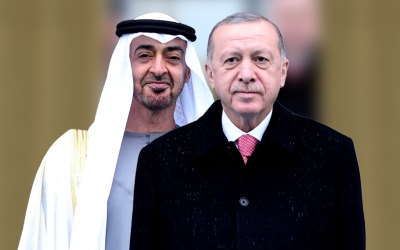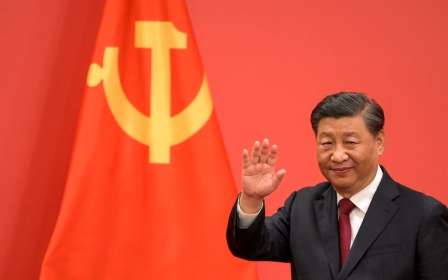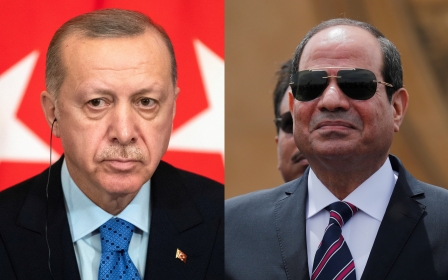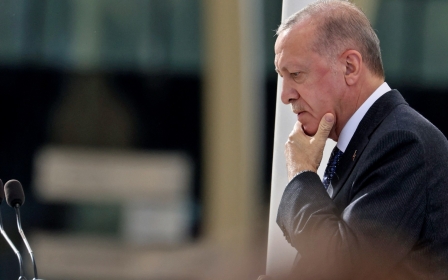Can Egypt and Iran turn the page on decades of tension?
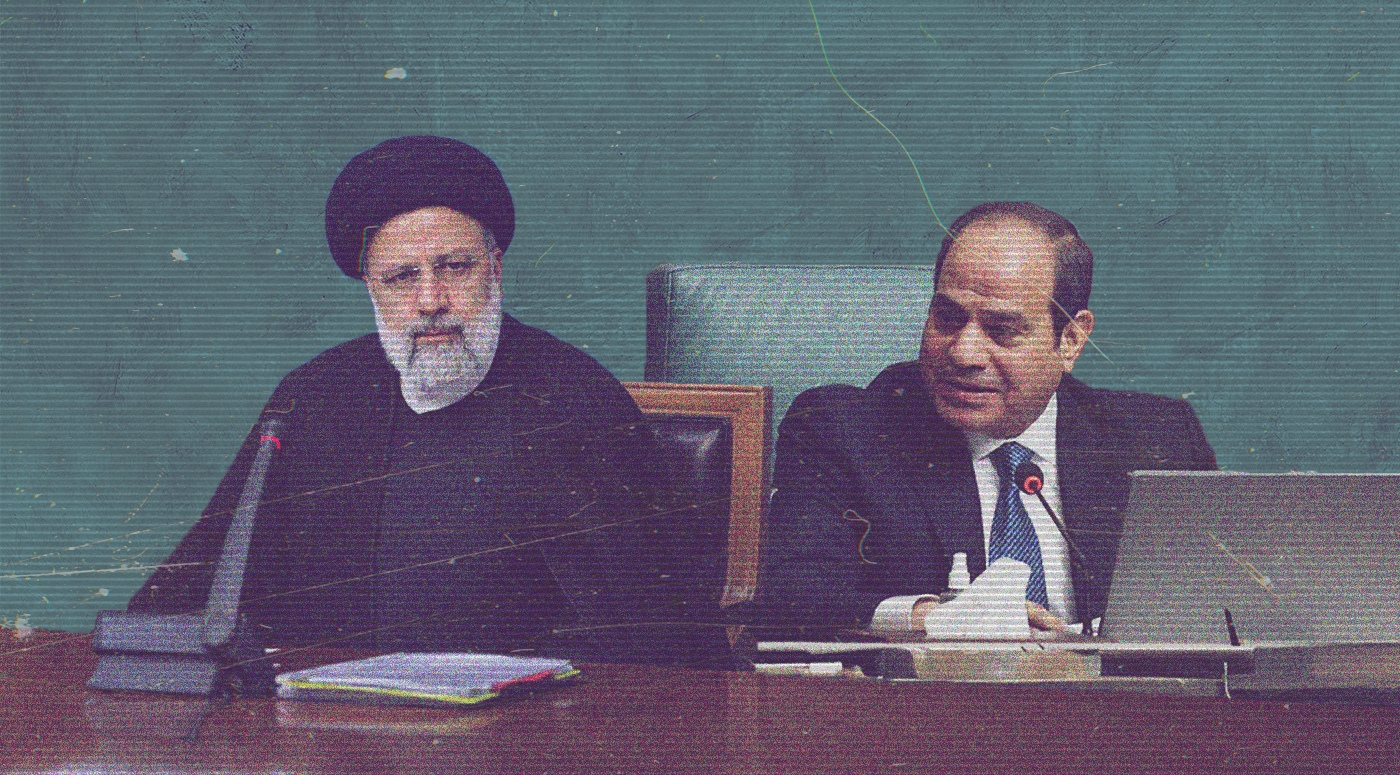
Amid a rift lasting more than four decades, recent diplomatic endeavours to mend relations between Egypt and Iran have come to light. Over the past year, numerous media reports have hinted at their efforts to achieve rapprochement, with no tangible outcomes to date.
In July 2022, Iranian Foreign Minister Hossein Amir-Abdollahian asserted: “Egypt is an important country in the Islamic world, and we consider the natural and developing relations between Tehran and Cairo to benefit the two countries, two nations and the region.”
But he said there had been no direct negotiations with Egypt.
In the past few months, there appears to have been more momentum on this. In May, an Iranian lawmaker told the Tasnim News Agency that Iran-Egypt negotiations were underway in Iraq, with the promise of bilateral relations resuming in the near future.
Two months later, an Iranian diplomat indicated that Tehran and Cairo were working to elevate their relations to the ambassadorial level.
New MEE newsletter: Jerusalem Dispatch
Sign up to get the latest insights and analysis on Israel-Palestine, alongside Turkey Unpacked and other MEE newsletters
But the most powerful and high-level message thus far came last May from Iranian Supreme Leader Ayatollah Ali Khamenei, who professed Tehran’s openness to improving diplomatic relations with Egypt. Coming during a meeting with the sultan of Oman, his statement created an impression that Muscat could be playing a pivotal role in talks.
All these developments suggest significant progress in efforts to normalise relations between Iran and Egypt. Yet, Egypt has denied any discussions on normalisation with Iran.
This contradiction could indicate that Cairo is testing the waters with Gulf countries, especially Saudi Arabia and the UAE. Alternatively, Egypt could be positioning itself as a significant player that won’t easily be swayed by mere talk of normalisation, instead, it is demanding more significant concessions.
Regardless, the two parties reportedly met in Iraq earlier this year, followed by a trip by the Iraqi prime minister to Egypt in June to discuss the possibility of reconciliation with Egyptian President Abdel Fattah al-Sisi.
Regional role
Diplomatic relations between the two countries were severed in the wake of the 1979 Iranian revolution.
Current discussions around potential normalisation make sense within the context of unprecedented de-escalation across the Middle East, with several regional players normalising relations over the past couple of years, including Egypt with Qatar and Turkey, and Iran with Saudi Arabia and the UAE.
Normalisation talks between Egypt and Iran must be viewed in the context of intra-Gulf dynamics and Egypt-Gulf relations. Traditionally, Cairo has capitalised on Iran-Gulf tensions to elevate its regional role, presenting itself as a regional guardian for the Gulf Cooperation Council countries.
Cairo has thus consistently refrained from normalising its relations with Tehran, expecting gains in return, including financial support. In response, the Iranians have leveraged the situation to play a larger role in the Palestinian issue and gain support among the Arab public.
Tehran has always feared that a Turkish-Egyptian-Gulf axis could diminish its regional influence
But regional dynamics have shifted significantly in recent years.
The Yemen war showed the Gulf monarchies that Egyptian support against Iran was more rhetorical than substantive.
Both Saudi Arabia and the UAE are unwilling to continue financially supporting the Egyptian regime as they have over the past decade. This has put pressure on the Egyptian government, pushing it to find alternatives, including normalisation with countries such as Turkey, and possibly Iran.
Likewise, the normalisation of relations between Iran and Saudi Arabia and the UAE, disrupted Cairo’s traditional strategy. Egypt lost its incentive to maintain tensions with Iran.
In addition, many regional countries anticipate that the US will eventually conclude a deal with Iran on its nuclear programme, potentially disregarding the interests of regional players. As such, they see little reason to maintain hostilities with Tehran, aiming to avoid future complications in a post-US-Iran-deal era.
Geopolitical cooperation
Meanwhile, Tehran aims to use its breakthrough in relations with Saudi Arabia to gain regional advantages. Their rivalry has obstructed Tehran’s efforts to win hearts and minds in the region and to secure major public support across the Islamic world.
The rapprochement removes a significant barrier, allowing Tehran to target Egypt as the next potential normalisation partner, and possibly Jordan as well.
The normalisation of ties between Egypt and Turkey provides additional motivation for Tehran to expedite its outreach to Cairo. Tehran has always feared that a Turkish-Egyptian-Gulf axis could diminish its regional influence. Beyond that, a closer relationship with Egypt could aid Tehran in countering efforts by the US and Israel to isolate Iran and portray it as a “rogue” actor.
Normalisation could boost Iran’s reputation in the Arab world and open the door to increased geopolitical cooperation.
Iran also seeks to safeguard itself from the implications of a potential Israeli attack on its nuclear programme by expanding its reach in the Arab and Islamic world and isolating Israel in the public sphere. Reaching out to Arab states, such as Saudi Arabia and Egypt, serves this strategy.
Besides geopolitics, Cairo and Tehran face severe financial challenges, driving their willingness to reassess relations. Amid massive economic hardships and record inflation, Egypt has accepted international loans and support, with the caveat of mandatory reforms.
For its part, Iran has struggled under the burden of US sanctions. Normalisation between these two states could open avenues for crucial economic cooperation.
Still, considering that Iran could reap greater economic and geopolitical benefits from normalisation, Cairo would likely demand a high price and could use negotiations as a card to further increase its value in the eyes of the Israelis and Americans.
The process is not free of challenges. The historical baggage and deep-rooted animosity between Egypt and Iran cannot be disregarded, and the complex regional dynamics could impact the trajectory of the process.
At the same time, recent developments and shifting regional dynamics offer a glimmer of hope, with an environment conducive to dialogue and reconciliation. Enhanced regional stability and economic cooperation are compelling incentives for both Egypt and Iran to pursue a closer relationship. The coming months will be crucial in determining whether they can overcome the obstacles and start a new chapter.
The views expressed in this article belong to the author and do not necessarily reflect the editorial policy of Middle East Eye.
Middle East Eye delivers independent and unrivalled coverage and analysis of the Middle East, North Africa and beyond. To learn more about republishing this content and the associated fees, please fill out this form. More about MEE can be found here.



